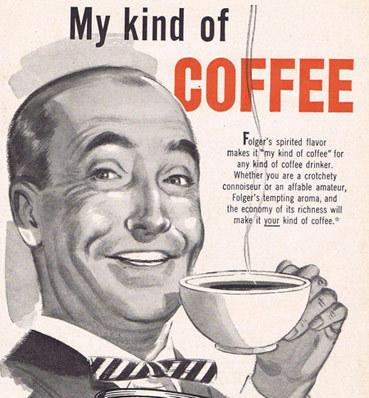Coffee, one of the world’s most beloved beverages, has a rich history that intertwines with the development of American culture in fascinating ways. This caffeinated elixir, believed to have originated in Ethiopia, has played a significant role in shaping social norms, economic practices, and even political landscapes across the United States.
The Legendary Origins of Coffee
The story of coffee’s discovery is steeped in legend. One popular tale narrates how an Ethiopian goat herder, Kaldi, noticed his flock becoming energetic after consuming the bright red berries from a certain tree. Around 1000 AD, this energizing effect led Arabs to brew these beans into a drink, marking the birth of what we now know as coffee.
Coffee’s Journey to the Americas
Coffee made its way from Africa to the Arabian Peninsula and then to the rest of the world through trade and conquest. However, it wasn’t until the 17th century that coffee found its footing in the American soil. The Dutch, known for their savvy trading practices, introduced coffee to their colonies in the Caribbean. It was in these tropical climates that coffee cultivation began to flourish.
The American Colonies and Coffee Culture
In the American colonies, coffee became a symbol of sophistication and refinement, particularly among the growing urban elites. Tea had been the preferred drink prior to the Boston Tea Party in 1773, an event which galvanized colonial resistance against British rule. After dumping tea into Boston Harbor, Americans turned to coffee as a patriotic alternative. Coffee houses sprang up, mimicking the social spaces of London but with a distinctly American twist – they became centers for political discourse and exchange.
Coffee and Expansion Westward
As the nation expanded westward, so did coffee culture. The California Gold Rush of 1849 brought a surge in demand for coffee as prospectors sought a quick source of energy and comfort. Coffee vendors followed the trails blazed by pioneers, ensuring that this hot bean juice remained a staple of American life on the move.
The Rise of the American Coffee Industry
By the late 19th century, technological advancements allowed for mass production and distribution of coffee. Brands like Folgers (founded in San Francisco in 1850) and Maxwell House (launched in Nashville in 1892) became household names. These companies not only supplied coffee to a growing domestic market but also exported American coffee culture abroad.
The Modern Coffee Renaissance
Fast forward to the latter half of the 20th century, when coffee experienced a renaissance of sorts. The rise of specialty coffee shops like Starbucks marked a shift towards gourmetization. Suddenly, coffee wasn’t just about the buzz; it was about the experience, the taste, and the craft behind each cup.
Today, coffee remains an integral part of American life, from daily morning rituals to high-end culinary adventures. Its journey from an Ethiopian forest to the heart of American culture is a testament to the power of global connections and the universal appeal of a good cup of joe.
In conclusion, coffee’s origins in Ethiopia and its journey to the Americas illustrate a shared history that transcends commodity. It reflects the complexities of cultural exchange and the evolution of a product deeply embedded in the social fabric of the United States. As we savor each aromatic brew, we participate in a legacy that spans continents and centuries.
Discover the art of coffee brewing in the comfort of your own home with our exquisite range of coffee machines. Whether you’re seeking a rich espresso or a smooth pour-over, our state-of-the-art equipment brings the café experience to your kitchen. Embrace the cultural significance and historical legacy of coffee as you savor every aromatic brew—a testament to the sophistication of your coffee-drinking habits.

Post time: Jul-10-2024
